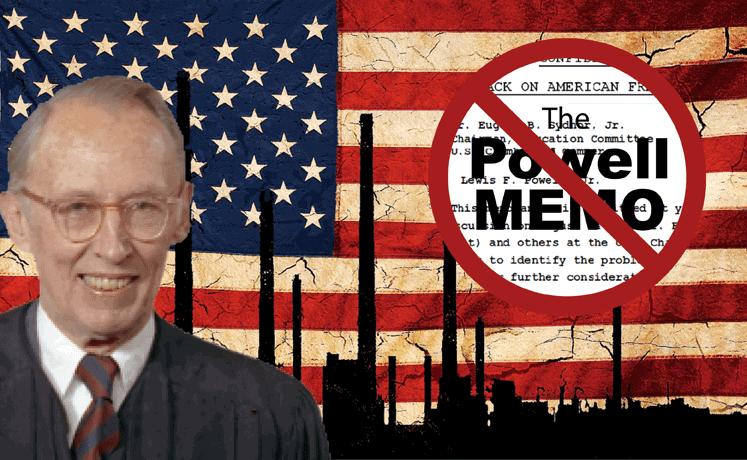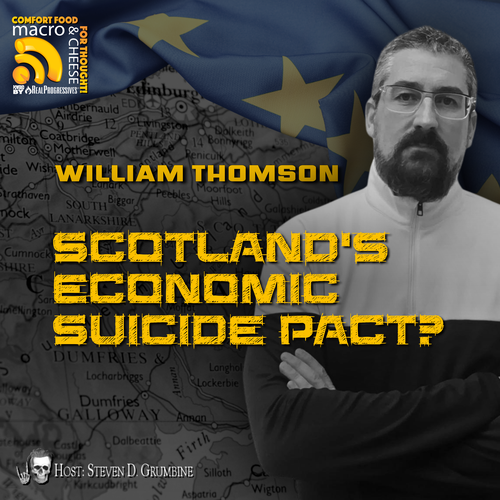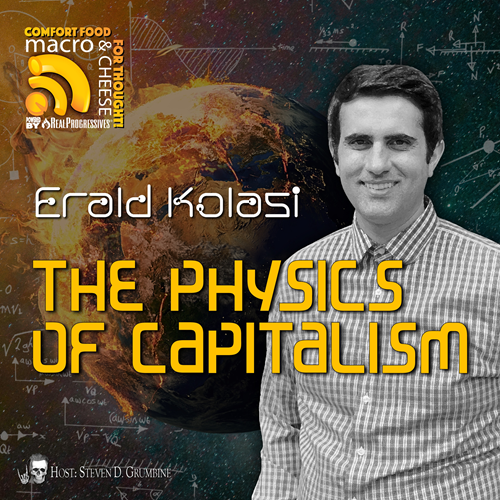Episode 184 – Is Geoengineering the Answer to Climate Crisis? with David Keith
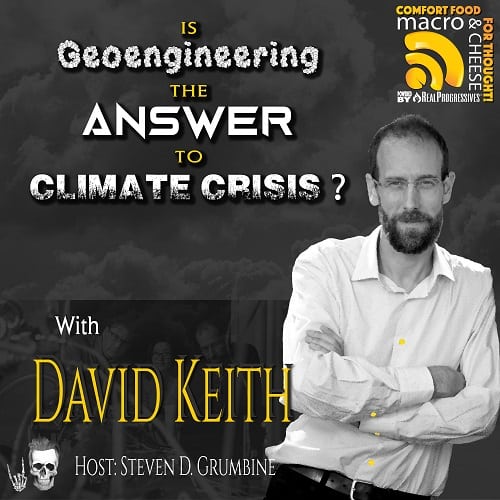
FOLLOW THE SHOW
Physicist David Keith, author of “A Case for Climate Engineering,” talks with Steve about the science of solving climate change, the steps that must be taken, and the different roles for scientists and political activists.
We often talk about climate change on this podcast. The IPCC deadline is hanging over our heads like the sword of Damocles. This week Steve talks to David Keith, a professor of both Applied Physics and Applied Policy at Harvard, and author of A Case for Climate Engineering.
Climate engineering, a term for solar geoengineering or solar radiation modification, would enable us to alter the Earth’s reflectivity and reduce some of the climate risks that come from accumulated carbon dioxide. Keith is quick to point out that this is not a silver bullet but should be considered as part of a multi-pronged strategy.
Managing climate risk involves four basic actions:
- Cut emissions by decarbonizing the energy system
- Remove carbon dioxide from the atmosphere
- Solar radiation modification, or solar geoengineering
- Adaption to reduce the harms of climate change on crops, people, and ecosystems
While there’s no way to address climate change without replacing our energy system, it’s not the entire solution. If we stop all CO2 emissions today, the climate problem won’t improve, it will merely stop getting worse. We won’t have reduced the amount of carbon in the atmosphere. Thus the case for climate engineering.
The discussion includes the different roles for scientists and activists. They look at limitations, or flaws, in the IPCC report, and consider the importance of separating science from strategy.
David Keith has worked near the interface between climate science, energy, technology, and public policy for 25 years. He took first prize in Canada’s National Physics Prize exam, won MIT’s Prize for Excellence in Experimental Physics, and is one of Time Magazine’s heroes of the environment. He’s a professor of Applied Physics at the Harvard School of Engineering and Applied Sciences, and professor of Public Policy at the Harvard Kennedy School and founder of Carbon Engineering, a company developing technology to capture CO2 from the ambient air to make carbon neutral hydrocarbon fuels. He is author of “A Case for Climate Engineering.”
@DKeithClimate on Twitter
Macro N Cheese – Episode 184
Is Geoengineering the Answer to Climate Crisis? With David Keith
August 6, 2022
[00:00:05.850] – David Keith [intro/music]
Starting with decarbonization. I think that’s the one that you can say we have to do. There’s no version of solving this problem or reducing this problem without reshaping our energy system so that, eventually, it does not emit CO2.
[00:00:23.830] – David Keith [intro/music]
It’s been scientifically pretty clear that burning fossil fuels will warm the planet with painful consequences, and that’s been known for a long time. The first major report to a U.S. President that had those facts in it was in 1965 when I was two years old.
[00:01:35.110] – Geoff Ginter [intro/music]
Now, let’s see if we can avoid the apocalypse altogether. Here’s another episode of Macro N Cheese with your host, Steve Grumbine.
[00:01:43.040] – Steve Grumbine
All right. This is Steve with Macro N Cheese. We’re leaving the economics world and we’re going into the school of geoengineering. We’re going to be looking at climate science from the science side of it as opposed to the legislative and economic side of it. And so one of our patrons reached out and said, you got to check out this guy, David Keith. He is a genius. He’s out of Harvard. You’ll love him.
So David Keith has worked near the interface between climate science, energy, technology, and public policy for 25 years. He took first prize in Canada’s National Physics Prize exam, won MIT’s Prize for Excellence in Experimental Physics, and he’s one of Time Magazine’s heroes of the environment. He’s a professor of Applied Physics at the Harvard School of Engineering and Applied Sciences, and professor of Public Policy at the Harvard Kennedy School and founder of Carbon Engineering, a company developing technology to capture CO2 from the ambient air to make carbon neutral hydrocarbon fuels. So without further ado, let me bring on my guest. Welcome to the show, sir. Thank you so much for joining me.
[00:02:55.780] – David Keith
Thanks a lot. Pleasure to be here. Not totally sure we’ll stay away from economics and policy, though.
[00:03:02.380] – Grumbine
I prefer that anyway. But it just seems like this will add a layer of depth that I think a lot of people are missing, including myself. So this is an education for me as well, and I’m very excited. I did pick up your book. “A Case for Climate Engineering,” 2013 from MIT Press. Very interested in understanding what this whole concept is of geoengineering and how it plays into the climate crisis that we hear so much about.
[00:03:31.810] – Keith
So solar geoengineering or solar radiation modification – people argue about the name – or climate intervention, is the idea that humans might deliberately alter the Earth’s reflectivity, say, by putting aerosols, fine particles in the upper atmosphere. But there’s a bunch of other ideas, and that the purpose of that would be to reduce some of the climate risks that come from accumulated carbon dioxide.
It’s accumulated carbon dioxide and other greenhouse gases that drive climate change. And the larger policy thinking is that this is not a solution to climate change. A complicated problem like climate change never has one solution, but that it is one of the things we might do and that it might be complementary to cutting emissions. So that’s the high level view of what this is.
[00:04:17.410] – Grumbine
So we often hear people talking about we’ve got to get rid of fossil fuels, we’ve got to end our fossil fuel dependence, got to move to renewables. But most folks that’s only a very small part of the overall. We’ve got to actually claw back what has been taken. We’ve passed that limit long ago and the technologies such as geoengineering are one such way of dealing with that. Can you lay out what you envision, a comprehensive approach to climate change or climate crisis?
[00:04:51.790] – Keith
Sure. I would say there are four broad physical things to do to manage climate risk. One is to cut emissions by decarbonizing the energy system. The next one is to take carbon dioxide out of the atmosphere. The third one is this solar radiation modification. And the fourth is all the local adaptive measures that we do to reduce the harms of climate change on crops, on ecosystems, on people.
So broadly there are these four categories of response. Of course, there are very different political pathways to get to those responses. And starting with decarbonization, I think that’s the one that you can say we have to do. There’s no version of solving this problem or reducing this problem without reshaping our energy system so that eventually it does not emit CO2. Renewables.
It’s extremely exciting how the cost of solar has come down. I think renewables play a big part, but it isn’t necessarily just renewables. Nuclear has a really low land footprint and it’s the other big way that we decarbonize the global energy system. Or might be. But in any case we have to decarbonize. But a central factor – the most important single fact about climate science – is that warming over, say, this century is proportional to cumulative emissions.
So that means that if we stop emitting carbon dioxide, if we stop all emissions today, the climate problem doesn’t get better, it just stops getting worse because we’ve stopped accumulating. But we haven’t reduced the amount of carbon in the atmosphere. If you actually want to reduce the amount of carbon or reduce temperatures this century, compared to any place you are, any given time. If you want to reduce temperatures, you have to either take carbon out of the atmosphere or do solar geoengineering or some combination.
[00:06:30.070] – Grumbine
One of the things that you have in your intro to your book that I found fascinating, very few people say it so distinctly. You can approach the world as a crank either direction, either complete denial or out of your mind, hair on fire, non-thoughtful approaches to attacking this problem. And we’ve got it coming from all sorts of different angles. What would you say is the way of looking at geoengineering and solutions to this that keep you out of the crankosphere, so to speak, and keep you in solid science?
That’s one of the things I really appreciated about the book, was that you focused heavily on solid science. You weren’t interested in the political narrative so much. You were looking at this empirically. And I feel that that is exactly what we need to do, because we only get really one shot at this thing. We’ve got to get it right. Can you explain how we stay out of crankery and what constitutes solid science?
[00:07:30.130] – Keith
I wish I could. I love the phrase crankery. I don’t think there’s any magic way to distinguish those two. I think that there certainly are ways that rational debate, I hope, gradually weeds out nonsense. But, science, lots of scientists, including me, I’m sure, are guilty of nonsense at times. We keep finding that science we thought we knew was wrong. Look at the headline studies on vitamin D that came out a few days ago, showing that it was much less effective when we actually controlled studies than we thought. So there is no magic tool to separate out crankery from science.
[00:08:09.670] – Grumbine
Understood. So with that, the current debate out there, it feels like when you hear politicians talking about it, it feels incredibly veneer level, I imagine, because most of society doesn’t have a deep understanding of the conditions around it. And there’s so much disinformation out there that it probably feels like, here we go again – again.
What is the right way of looking at the political climate around climate change? I see the head of the UN is actually speaking boldly about climate crisis right now, which is welcome. But at the same time, though, I see Biden taking steps to try to step in. Nowhere near close to enough. And with this Manchin-Schumer, I don’t know what you want to call it… Compromise?
[00:08:57.350] – Keith
Compromise is what we do in politics.
[00:08:59.610] – Grumbine
Yes, exactly.
[00:09:00.630] – Keith
If you don’t want compromise, that means you want some kind of dictatorship.
[00:09:03.940] – Grumbine
The question becomes, though, if I say my toilet is overflowing and I do something compromise, but it doesn’t stop the overflowing. Have I really solved anything? So I guess my question is what’s being talked about in the political sphere right now a step in the right direction? Can you talk a little bit about the current situation as it’s been laid out?
[00:09:27.250] – Keith
So, yeah, I think the short answer is yes. I think it’s unequivocally a step in the right direction. The argument is about how effective the step is, how cost effective it is, and how big a step it is. One really important piece of science to say is that climate science doesn’t provide a clear threshold, a clear idea where we are safe below a certain level of warming and dangerous above it.
I think in fact, some things I say are controversial. I think this is actually quite mainstream, and though it’s hidden is that what we really know is that as we put more CO2 in the atmosphere, temperatures rise, as I say, and that the risks, various kinds of risks, from extreme storms to sea level rise to extinction of some species, these risks grow with temperature, and they grow faster than linearly.
So adding a degree on top of two degrees from two to three, global warming is worse than going from one to two. I think that’s really clear, unequivocally. But there’s not some threshold, and it’s really important to separate out science from strategy. So a lot of activists, and I absolutely salute them, we wouldn’t have action without activism, and we have to have activism, have constructed a narrative around the Paris 1.5 commitment.
So that there’s a lot of talk that this action will or will not keep us safer, keep us under the Paris commitment. I think that’s a useful way to negotiate towards some action. But it’s important to be clear eyed that the Paris commitment is a political number. We can argue about whether it’s a good or bad number, but there’s not a scientific threshold. And so that means here that framing of your question about is it enough?
There isn’t an objective answer to what’s enough. This is inherently a value question. People will have different views. So me, as a voter, I would like to see more action to cut emissions, substantially more action to cut emissions than we have now. So from my perspective, I’d like to see more than the bill that was just announced, the IRA Act. But I think there’s also no question that’s a real step in the right direction, it will do something to reduce US emissions.
[00:11:24.670] – Grumbine
Okay, so people like Peter Kalmus and others who are mainline frontline activists, I think recently he handcuffed himself to J. P. Morgan and trying to draw attention to this, and I salute that. But we’ve been talking about this IPCC report from 2018 that gave us twelve years to mitigate the worst of climate crisis.
[00:11:51.610] – Keith
I love IPCC, I’ve been an author, but this is where I dropped out and this is where some people who wrote that report have had to backpedal intensively. So it’s important to look at. There was a political target at Paris of two with a stretch of 1.5, and then IPCC was asked to summarize basically how hard it was to meet 1.5, and something about the consequences.
But the narrative that came out, that we had eight years to save the planet, or there’s different versions of that number, that narrative, that eight years to save the planet narrative assumes there’s a sharp threshold where you’re safe if you’re under 1.5, and you’re dangerous if you’re above. And there’s a very clear, well defined carbon target where we know exactly how much carbon we emit to stay under 1.5 or above.
Both those things are scientifically false, and the authors of that report are actually clear about it in conversations. So this isn’t saying climate science is false. There’s no question climate science is real, we have a deep problem, etc. But that narrative, I think IPCC made a mistake there. One of my colleagues, Oliver Geden, a really thoughtful German, said that IPCC scored an own goal, the European term for when you score your own team in soccer.
I think we need activists. We need people locking themselves to J. P. Morgan or whatever. That’s how we get political action. But IPCC’s job is to assess the science, not to do activism. And I think that eight years to save the planet framing was an effective activist signal, which is great, but it wasn’t the IPCC’s job to do that, and it’s not based on science.
[00:13:22.510] – Grumbine
I appreciate you saying that. With thresholds that no one can count on, and framing from the news media and politicians that are politically charged or perhaps exaggerated or misstated. There was a more recent IPCC report that basically said we had already hit our threshold or we had five years to hit our threshold. But the measurement was done in increments of five. And really the way that they had laid it out was that 2020 was the tipping point of that.
[00:13:56.620] – Keith
But they don’t say that. I mean, if you read the report, you really need to separate what the report actually says from what some of the reporting says. So what we know is that it is unequivocally clear that you keep burning fossil fuels, you make the planet warmer, there will be terrible consequences. We know for sure. Those consequences get worse as you put more CO2 in they get worse.
We know for sure the uncertainties are big. So the uncertainty in simply predicting how much warming, a really basic fact, which is much easier to understand than exactly, say, how many forest fires, if you want to predict how much global warming we get for a certain amount of CO2, that prediction has an inherent error that’s still almost a factor of two. That’s the remaining scientific uncertainty.
And so that’s a basic fact that’s in there in the IPCC. It hasn’t really changed for 30 years. And so once you know that fact, and it really is a fact, maybe it’s not factor of two, you could argue factor of 30%, but it’s a significant uncertainty, then you know that there isn’t some sharp threshold where there’s an exact amount of carbon that gets you to one place or another just isn’t true. I kinda want to defend the IPCC. That is not what the report says.
[00:15:10.540] – Grumbine
Thank you. There’s massive amounts of articles coming out of The Guardian and other places that laid it out there. And I think this is a really great conversation because someone like myself, who plays both host and trying to be rational and also activist, which tends to trend a little bit irrational at times. I’m trying to find that sweet spot, and I want to be able to make sure our listeners are getting the truth.
And with you focusing your efforts on these technological approaches to decarboning the environment, I’m interested in understanding what an effective frame for a regular person. Not a scientist of your caliber, but a regular person assessing the news and assessing the political landscape and trying to make heads or tails of their lives. What would be a good starting point for people that don’t have that level of scientific understanding to be able to weed through this?
[00:16:06.140] – Keith
I guess my really basic framing is that it’s been scientifically pretty clear that burning fossil fuels will warm the planet with painful consequences. And that’s been known for a long time. The first major report to a US president that had those facts in it was in 1965 when I was two years old. This goes back a long way. There’s a lot of robust science here.
And the important thing for people to know, because probably some of their relatives are climate deniers, is the core facts of the climate response to CO2 were as well established as anything else in science. We know this very well. But it’s also true that there’s plenty of remaining uncertainty and that this is this slowly growing cumulative problem.
And it’s clear that we should have acted decades ago much more than we did. And it’s absolutely clear that self-interest in fossil fuel driven economies and fossil fuel companies was part of the political reason that we didn’t act. Only part of it. The other answer is people don’t really like to spend money on stuff that benefits mostly the far future.
So part of it is straight political corruption. Part of it is just inertia that it’s hard to convince people to spend money on a future problem. Those, I think, are the kind of core facts, and I don’t think that activists are irrational. If I was running an activist organization, I would probably adopt something like the eight years to save the planet framing, because that tends to make a negotiation tight and gets you more deal tension, as we say in business negotiations to get to somewhere. It’s a rational strategy. There’s actually lots of evidence that’s easier to negotiate if there is a sharp threshold. But the problem is that it isn’t true. There actually isn’t a sharp threshold.
[00:17:47.470] – Grumbine
Fair enough. I want to take us into your work in the private sector with the company you have in terms of understanding the technologies that are available to us or could be available to us that might play a role in building a network of carbon mitigation strategies. I know some of the work that you put forward, some of the stuff regarding putting sulfuric acid into the atmosphere to help reflect…
[00:18:17.530] – Keith
I want to distinguish very different things with really different parts of my life and really different technologies. As I said early on, four basic things to do: cut emissions, remove carbon, solar geoengineering, adaptation. So I think there’s no question that the number one focus should be on cutting emissions. And if you ask me, as a citizen, what fraction of total resources in terms of money, how to divide them, among those things, I would put 80% to cutting emissions.
I put like 17% into adaptation, and I put only a couple of percent now into carbon removal or solar geoengineering. Dominant thing should be cutting emissions for sure. And just to be clear, I did start a company that can do carbon removal. I’m very excited and super proud of what we’ve done. And I’m happy to have that work in a capitalist for profit mode, because carbon removal can be a well-regulated thing. That is completely different from solar geoengineering, where I oppose commercial action, I don’t do anything commercial, and I’ve actually worked to try and stamp out what little commercial activity there is.
[00:19:19.940] – Grumbine
So what would that look like as a nation state or a group of states deciding to take that on? What might that look like?
[00:19:29.110] – Keith
So very hard to talk about both these things. Are you asking me about carbon removal or solar geo?
[00:19:35.170] – Grumbine
Well, solar geo is one because that’s what you said would be the public space.
[00:19:39.770] – Keith
Yeah.
[00:19:40.420] – Grumbine
So I would want to start with the public, since that’s what we have some voting control over.
[00:19:45.350] – Keith
Yeah, so let’s stick to solar geoengineering. I think it is a deep puzzle. On the one hand, the science that we have using the same climate models as we use to understand the impacts of CO2 and other pollutants, that same set of climate and atmospheric environmental science. My read is that using a relatively small amount of solar geoengineering, say, putting sulfuric acid in the stratosphere, which sounds and should sound scary.
That if you did that to reduce temperatures by say, half a degree sometime mid or late century. So that is one part of what we do, as well as emissions cuts, that if you actually look at what the models seem to say, it looks like that would provide pretty large benefits in terms of really reducing a bunch of the key climate risks and pretty small harms in terms of, say, air pollution or damage the ozone layer not zero, but small.
So that’s what the model seemed to say. But I think it’s a fair statement that people don’t trust that the elite climate action or advocacy community doesn’t believe the models about solar geo measuring and believes that it’s very risky or there will be politically exploited, which it might be. And so in general, there’s been a sort of taboo about talking about it.
So it hasn’t been in the mainstream of the climate negotiations, there hasn’t been very much research attention. There’s been many leading climate scientists have actually argued that there shouldn’t be research on this topic that’s changing slowly. It’s actually, I think, really, even in the last year, getting easier to talk about it for a variety of reasons.
But I think it’s important to get that context that it’s been a kind of a fringe thing. While the basic idea has been around for a long time, it’s kind of been a fringe thing. That’s changing. And the central questions are really about building trust in the science that we have and then developing some understanding of what would be the political mechanism to actually implement these things.
Because one important thing to say is that unlike cutting emissions and removing carbon, it looks like actually doing some forms of solar geoengineering are cheap enough that money really isn’t the issue. The issue is about political power, about voice, who gets to make the decision about risks. Risks of doing and risks of not doing.
[00:22:09.950] – Intermission
You are listening to Macro N Cheese, a podcast brought to you by Real Progressives, a nonprofit organization dedicated to teaching the masses about MMT, or Modern Monetary Theory. Please help our efforts and become a monthly donor at PayPal or Patreon, like and follow our pages on Facebook and YouTube, and follow us on Periscope, Twitter, Twitch, Rokfin, and Instagram.
[00:23:00.870] – Grumbine
With that in mind, people looking up at the sky and seeing chemtrails and things like that. And so the myth or the lore or the fear has made it further than the science. And part of that is natural, I think. I don’t know of any cutting-edge subject or any subject that requires a deeper level of understanding that doesn’t end up finding a way into a conspiracy, which I want to avoid here.
So I guess my question is: because media is controlled by major corporations that have a stranglehold on the way information gets out, in your refereed articles and in your peer review publications, how do we split truth from propaganda? [laughter] Given the nature of media today I know it’s a tough one.
[00:23:55.520] – Keith
Much harder question than solar geoengineering. Obviously there are ways in which our society seems much more fractured than it used to. I think some of that is because in fact, it’s not as simple as to say media’s controlled. That’s both true, that in some ways media is controlled, but it’s also much less controlled because of the existence of podcasts like this one that I’m on right now or what have you.
So it’s not such a simple story, I think. I don’t know. I would say that we need better institutions in our democracies to allow consideration of complicated, ethically challenging technologies like this. And I think the current democratic governments are not doing a good job of managing these on lots of topics. And I don’t think the solution to that is just better media.
I think we actually need different kinds of deliberative citizen panels of some kind or other mechanisms that allow more educated, ordinary people to work together to actually thrash out some of these topics. Whether it’s advanced assisted reproductive technologies or solar geoengineering, and to have that provide important input into what policymakers decide. There’s lots of things we need to fix our democracy.
I’m no expert, but the short answer is I don’t know how to magically fix this. I do want to say one thing that I think it’s important to say. It’s not as if I think scientists should just have the answers or rule. Like I said in the beginning, science itself is wrong. And the decisions about what to do about this aren’t just science. They depend on value judgments and risk trade offs, where I may know much more about the science of this than most people, but my values shouldn’t count any more than anybody else’s.
[00:25:46.650] – Grumbine
Fair, I appreciate the framing of that. You brought up something in the very beginning about nuclear. We have looked at various discussions on this with folks like Steve Keen that are in the economic space. We talk about thorium type of nuclear power that maybe in the future could function in this space. It’s not ready for mass production, and there are issues with building these kinds of plants. This comes back to your political angle where there’s a lot of issues in terms of disposal of nuclear waste and is the risk reward worth it? When you brought up nuclear, in what framework were you thinking?
[00:26:31.530] – Keith
I guess I think in basic environmental science and what we know about the environmental impacts of different energy systems. So we have to get rid of fossil fuels. We need clean energy because people need energy for development. We need more energy than we’re using now if we want to enable some of the poor people in the world to really have a better shot at the life that you and I might lead.
So we need more energy, and it needs to be not fossil. So then you’ve got to look at what the environmental impacts, forget economics for now, of the different methods of getting energy are. And there are some you can rule out at very large scale almost right off at the scale that humans now use energy.
If you got a big portion of it from hydro power or biofuels, for example, you have really huge environmental impact in terms of land footprint, footprint on the biosphere. Solar is something where you really could power the whole planet on solar with a pretty small environmental impact. You cover something like 1% of the land surface.
So I think it’s completely possible to imagine a world that’s solar powered only. You’ve got to deal with the fact that the sun only shines during the day. There are a bunch of ways you could conceivably solve that – global scale transmission or making fuels or batteries – but none of them are easy. Nuclear power has a very small land footprint.
And objectively, when you actually look at measurements in terms of environmental impacts a very small environmental impact per unit of energy delivered. They’re obviously problems. I don’t think waste is one of them, significantly. I think weapons proliferation is a problem that worries me the most. There are also deep problems with costs and with management of the industry. But I think when I teach energy science and you look at what the measures of human impacts and environmental impacts of energy systems are per unit of clean energy produced nuclear looks pretty good.
So from my perspective, if you’re talking about really decarbonizing the world which is what we have to do and you want clean energy there are really two sources, only two, that looks scalable to the scale of human civilization. Tens of terawatts, tens of trillions of watts of clean energy. Two things that you could scale to that scale tens of terawatts with pretty low environmental impacts and that’s solar and nuclear.
[00:28:51.870] – Grumbine
Very good. What types of nuclear options have the most promise?
[00:28:57.450] – Keith
I think it’s more about management than the technology. I think overall I definitely see an argument for moving away from pressurized water systems to molten salt unpressurized systems, for sure. But I think the big issue is really managing the construction costs of the systems that we have because they all do produce a lot of power roughly as much as all solar and wind combined – right now, solar may have just passed nuclear for net generation globally – and they produce it safely.
And that’s even counting for the accidents. Just to be clear, right? I think it really is important to be objective about facts. If you look at Fukushima, the couple of workers who were most exposed took the biggest risk in the plants. I’m not talking about people outside the plant. People who took the biggest industrial risk in the plants. They suffered radiation exposure on the order of half a sievert.
And that’s the equivalent of changing your 30 year cancer risk by a percent or two. And that’s like a diet change. It’s not a trivial thing. I wouldn’t want to take that. I salute the people who did that. But it’s important to have perspective. That’s the kind of scale of that accident which is small compared to many other industrial accidents.
[00:30:09.090] – Grumbine
I appreciate that. You brought up one more thing: mitigation and adaptation have to be a part of an overall strategy. And one of the things that we have looked at is drought in various places as the climate changes and water becomes more precious. I know that you had said hydro doesn’t really scale and the footprint would be a tremendous impact on the environment.
But deep water filtration like going into the deep ocean and being able to desalinate on one level, providing fresh, clean drinking water to areas that lack it, but also leveraging the hydro power from those to provide power in those areas impacted. What are your thoughts on that?
[00:30:55.830] – Keith
Not sure I understand. So desalination is a way to provide water, but it takes an energy input that’s something that cheap solar, or nuclear – especially actually cheap solar, can work really well to provide desalination. And I think that’s very important. But that uses energy, doesn’t provide energy. Hydro generates energy, but with pretty big environmental footprints. And the kind of global maximum of all hydro capacity is only a few terawatts. So that’s like ten percent of what we might recently need mid-century.
[00:31:23.940] – Grumbine
Okay, so how might we look at getting water into places that are now drying up, if you will?
[00:31:34.390] – Keith
That’s a complicated and really different topic. There’s a lot of assumptions there about drying up that aren’t necessarily true. Maybe ask a narrower version of the question. Overall, it’s absolutely clear cut that global warming will make it warmer. Wil make the sea level rise, will make the ice melt. It will increase the intensity of extreme storms for sure, because there’s more water vapor in the atmosphere.
It increases total precipitation and evaporation, which have to balance. It’s not clear that warming does in any simple way translate in a drought. It will increase droughts in some regions, decrease in others. It’s complicated.
[00:32:16.450] – Grumbine
Thank you. For the lay person trying to make heads or tails of this.
[00:32:20.410] – Keith
I think it’s really important to separate out different pieces of this that we know really well from not so well.
[00:32:24.410] – Grumbine
Yes.
[00:32:24.950] – Keith
So it is absolutely unequivocally clear that if you keep putting more CO2 in the atmosphere, you’ll have sharper heat waves, sea level will rise, more intense storms, very clear cut. Changes in drought, much less clear. It’s clear would be true in some places. And the translation of those to what’s happening on the ground, which is a lot to do with development policy and water policy, is really complicated.
[00:32:49.090] – Grumbine
Okay, so I was going to take us to one final thing, and I guess that is in your position, you get to hear from experts that are working in this field far more often than the rest of us do. What is the temperature for change? What do you see coming right now? Do you see any emerging trends or things that we should get behind that might be interesting for our listeners to start digging into and learning more about?
[00:33:17.760] – Keith
I’ll give you two. I want to actually try and come back to maybe the main topic, which is solar geo. But the biggest thing is just demanding climate action. And I work on climate now for more than three decades. And I do think that as much as I’m very frustrated by politics, as I’m sure many of your listeners are, I think what we’re doing is insufficient.
I’m pissed off at corruption. I also think when I step back, we really are acting more to cut emissions than we were. Global spending on clean energy is now over 500 billion a year. And emissions in the US and Europe have been going down for quite a while. Of course, more should be done, but it really is exciting. The growth of global solar and wind capacity is no nonsense exciting. Real change. The change in electric vehicles is real.
So I actually think that the number one thing is not everyone needs to be an energy expert, but we can demand of our elected representatives that they do more to combat climate change. And on solar geo, I think the main message I want to give is that effectively that it might not be as crazy as people think. That in fact the scientific evidence is that it really might reduce risks and the risks it reduces might be most useful to those most vulnerable.
Let me give you some sort of numbers and data to back that up. So one of the things we are most sure is the harm of climate change is extreme heat. Extreme heat kills people. It reduces their ability to work and learn. We see that in reduced economic productivity. A year that’s an added degree or so hotter in a hot country like India reduces GDP growth significantly, whereas it actually increases it in a very cold country.
That’s part of the gross inequality of climate change, where a lot of the CO2 emissions come from the richest and a lot of the harm falls in the poorest. It does look like solar geoengineering would reduce peak temperatures in a way that’s pretty even, and the benefits of that would go most to places that are hottest.
There is in fact the one study that seriously looked at the impact of solar geoengineering on global inequality suggested it would sharply reduce global inequality because of this effect, where it’s tending to have the biggest benefit and including the biggest economic benefit in the poorest hottest countries. And there’s no question there are risks.
Don’t want anybody to walk away from this thinking that I’m soft pedaling that neither is a risk to damage the ozone layer or make a sky less blue, et cetera. But we actually started to quantify those risks. And just to take an example, that damage from ozone damage and air pollution damage from solar geoengineering we can estimate with standard environmental science models. And we can estimate the benefits of reduced deaths from heat, and the risks look like they are 100 times smaller than the benefits.
[00:36:07.990] – Grumbine
Very good. I really appreciate you explaining that to me. And I also want to just thank you so much. I’m not a scientist. My primary specialty is macroeconomics. And so this has been really helpful to me. Let me ask you, is there anything that we can do to follow you? Is there any additional works you’re on right now that might be of interest to our listeners?
[00:36:32.230] – Keith
Well, I had a long New York Times Sunday essay last fall that looked at the trade off between solar geoengineering and carbon removal. So that was probably a sharp recent way to do it. People can find on my academic website some videos that are some longer lectures if they want more background. But I think the most exciting thing actually isn’t just about me.
The most exciting thing is this topic is suddenly getting a lot more attention, including lots of young scientists and young activists beginning to think about it. So my biggest suggestion is don’t just look at my stuff. There’s now a global commission called the Global Overshoot Commission with four ex heads of state, some real leaders from the developing world, and that commission will look at carbon removal and solar geoengineering, basically at these different things we can do to manage overshoot as well as adaptation.
By far the highest level commission ever to look at these topics. That commission will begin to give some results, presumably in the next year. There are a series of different international organizations and environmental groups that begun to weigh in on this. And I think I’m thrilled that people want to read my stuff, but I think it’s very much not just about me.
[00:37:49.570] – Grumbine
I appreciate you bringing those organizations up. Are there any scientists or writers or individuals that we might want to follow up on and maybe even talk to ourselves?
[00:38:00.490] – Keith
Well, let me think. Most interestingly, very recently, Jim Hansen, who is some ways the single most, or one of the most visible climate scientists. He’s the guy whose testimony at Congress in I guess ’88 if the memory is correct, really helped to kind of start the modern climate effort. He just had a interview in Science magazine where he pointed to the need to take solar geoengineering seriously, and that felt like a pretty big deal.
So asking Hansen what he thinks is certainly worthwhile, but there’s a bunch of younger scientists working on this topic, including, I would point to something called the Degrees Initiative, which has funded a bunch of work by developing country scientists on this topic. I’ve talked to researchers and visited researchers recently from Jamaica and Indonesia and South Africa who are doing local work on understanding the risks and the benefits of solar geoengineering.
For example, a common misconception is that solar geoengineering will cause droughts, and I think there is some risk that it does in some places. But a really interesting study out of South Africa looking at its effect on South African drought provided a much more nuanced view, showing that in many cases it actually might reduce droughts. And I think it’s really important to see research like that coming out.
[00:39:22.630] – Grumbine
Thank you very much. This was very informative and I appreciate, once again, crossing lightsabers. This is a great way of me really getting to take a step back and hearing science, and it’s just been amazing. Thank you so much for taking the time to be with us today. And again, really appreciate it, folks. My name is Steve Grumbine.
My guest, David Keith. Please, by all means, share this podcast around. Let’s get some common sense around the climate crisis and be able to get some good science out there. And again, sir. Thank you again. We will talk again in the future, I hope. Have a great day, everybody.
[00:40:00.650] – Keith
Thank you very much. A pleasure.
[00:40:02.030] – Grumbine
You got it. We’re out of here.
[00:40:03.440] – Keith
Thanks a whole lot.
[00:40:09.650] – End credits
Macro N Cheese is produced by Andy Kennedy, descriptive writing by Virginia Cotts, and promotional artwork by Andy Kennedy. Macro N Cheese is publicly funded by our Real Progressives Patreon account. If you would like to donate to Macro N Cheese please visit patreon.com/realprogressives.
A Case for Climate Engineering by David Keith
Dr. Oliver Geden – https://www.swp-berlin.org/en/researcher/oliver-geden
1965 President’s Science Advisory Committee Report on Atmospheric Carbon Dioxide https://www.climatefiles.com/climate-change-evidence/presidents-report-atmospher-carbon-dioxide/
What’s the Least Bad Way to Cool the Planet by David Keith https://www.nytimes.com/2021/10/01/opinion/climate-change-geoengineering.html
Climate Overshoot Commission – https://www.overshootcommission.org/
In a paradox, cleaner air is now adding to global warming by Paul Voosen https://www.science.org/content/article/paradox-cleaner-air-now-adding-global-warming
National Association for the Advancement of Science academic journals: https://www.aaas.org/journals
Degrees Initiative https://www.degrees.ngo/
Related Podcast Episodes
Related Articles

How the Elites Weaponize the Economic Illiteracy of the Working Class
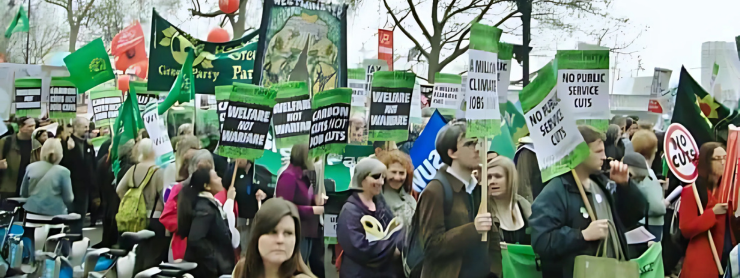
What’s Wrong With The Green Party?
